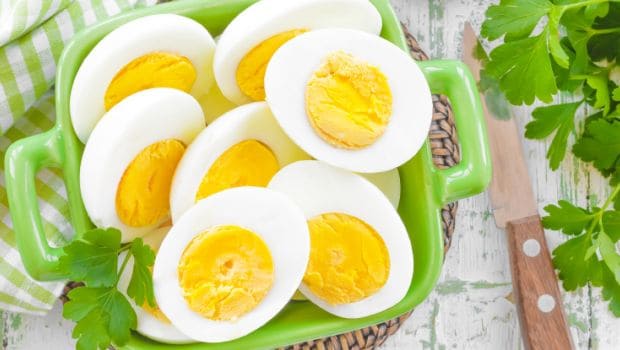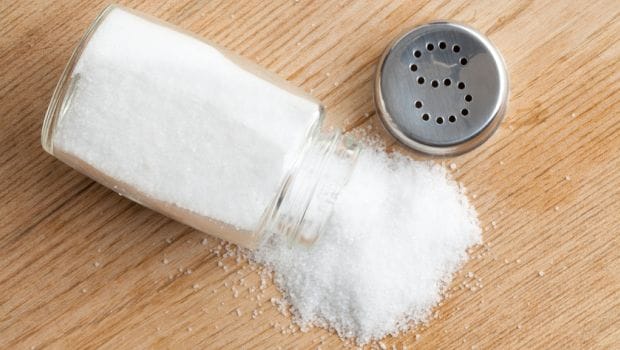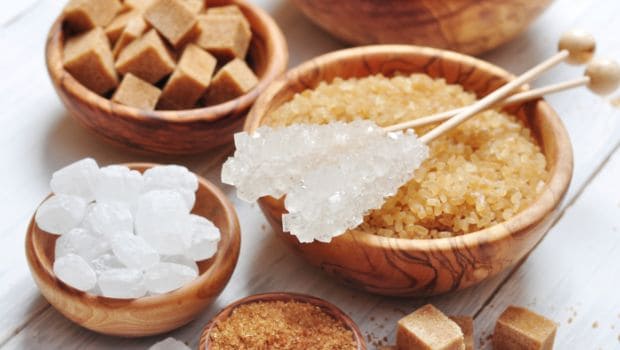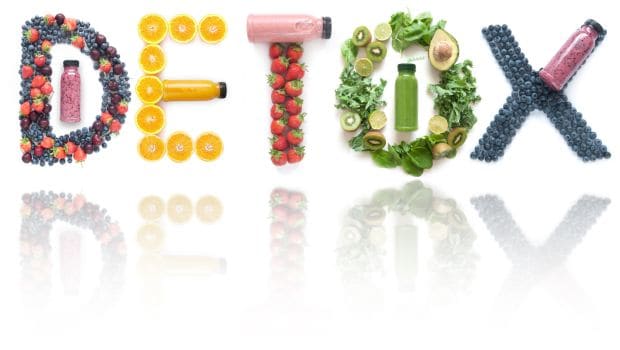Detox is the new buzzword in town. Every conversation around food and any seminar on healthy eating is incomplete without a debate around it. Given that we are surrounded by toxins every step of the way – from environmental toxins to those present in preservatives and pesticides – it’s recommended that we reboot from time to time. A detox basically means a planned cut back on toxins with a focus to improve our health and general well-being. “A good detox or cleansing program assists your body to get rid of old sludge and excess accumulated in your tissues over the years. It gives a good rest to your organs especially your overworked digestive system’, says Macrobiotic Coach and Nutrition expert, Shilpa Arora. Fasting serves as a healthy way of detoxing especially when your fasting ritual allows you to consume fruits and light vegetables. The list of foods recommended to avoid during a detox regime is pretty much the same list you avoid at the time of fasting. While this may vary depending on people’s beliefs and practices – the essence is to eat light, fresh and unadulterated food. And that’s exactly what a detox recommends too.Bear in mind that the human body has natural ways of detoxing every day. The digestive system eliminates undigested food and the lungs throw out air rich in carbon dioxide. The skin too works to eliminate waste and sweat through pores and sweat glands. Sometimes, apart from these natural detox methods, the body needs additional help in getting rid of toxins built up over a period of time. ‘Our body is a self-healing organism, it eliminates and neutralizes toxins on a daily basis. Detoxing is like giving your body an internal spring clean at a cellular level. A key for a good detox is to keep your body well-hydrated with natural beverages like coconut water, green vegetable juices, lime water and fermented drinks like kanji to re-boot your digestive health’, explains Ms. Arora.
(Also read: 6 Wonderful Health Benefits of Detox Drinks)How often should you detox?A 3 to 7 day detox will clean your pipes of excess mucus, food wastes, sludge, old fecal matter, and inorganic mineral deposits. A detox routine requires you to eat light foods that soothe the system and don’t take a toll on your body during digestion. Even a short fast eliminates toxins from your body. While fasting can be a good way to detox and reboot your system, it’s imperative to make sure the nutritional quotient of the food being taken is not low.Here is a list of 5 foods we avoid during fasting which also help the body detox:1. AlcoholEvery time you consume alcohol, your liver works overtime to break down the alcohol in your system. Alcohol is a diuretic too – making your kidneys throw out more fluids, along with some vital nutrients. This is what causes you to feel dehydrated the morning after. Avoiding alcohol for a few days gives your system a much needed break.

2. Eggs and MeatsNon-vegetarian foods are avoided during Navratri fasting by most in our country. Avoiding these can provide a good detox to the system too. While eggs provide valuable protein to a daily diet, they can be difficult to digest for many people. Meat and meat products, especially when processed, are high in saturated fats and may have a cocktail of additives in them. Even organic meat makes the digestive system work harder. Avoiding these can make you feel lighter.

3. SaltSalt is an important nutrient required by the body. When we fast, our regular intake of food goes down and with this, the intake of salt too. We may be restricting ourselves to one meal a day only. Traditionally, people chose to eat food cooked in sendha namak. The basic difference between table salt (what we eat every day) and sendha namak (rock salt) is that the former goes through a process of refining where it is believed that important minerals in the salt are lost. While these minerals can be made up by other food groups, the most important thing to consider when talking about salt is the quantity in which it is consumed. Too much salt in the body can cause health concerns like hypertension. A break from your everyday consumption of salt can be a relief for the system and reduce bloating and water retention. But just because it’s made with sendha namak don’t go overboard with fried foods like namkeens, chips and even processed foods. You want to give your system a fresh start and feel light as we prepare ourselves for the summer months.
(Also read: 5 Incredible Rock Salt (Sendha Namak) Benefits for Skin, Hair and Overall Health)
4. Wheat ProductsUnless you suffer from Celiac Disease or are gluten-intolerant, there is no reason for you to cut out this group of foods from your diet completely. Wheat products, especially those made from whole grains are an important part of a balanced meal and must not be eliminated completely. Having said that, some everyday products made with wheat like pasta,naans and breads may be difficult for some people to digest, especially when coupled with other unhealthy lifestyle habits.Navratra fasting also means staying away from wheat and wheat products. A detox program would also require you to steer clear of such grains to clean out the gut completely. An overdose of wheat products can lead to constipation or diarrohea in some people so even when you come back to your regular eating patterns, make sure to go light on these.

5. SugarCutting back on sugar is an easy way to cut back on unwanted calories. Foods that are high in sugar are quick to give an energy boost as the sugar gets absorbed quickly into the bloodstream. You feel the boost of energy till the blood sugar levels are high but soon the levels fall and you could feel slow and tired. When detoxing – stay away from high-sugar foods. During fasting too, avoiding over sugary drinks is advisable.
 “A healthy detox, according to traditional Chinese medicine and Ayurveda, encourages to look at your diet and lifestyle. There are tons of detox plans, however which ever one you choose, make sure they help you CLEANSE, RE-BUILD and MAINTAIN’, says Dr. Arora.Quick tips to stay fresh during your fasting and detoxing routine:1. Focus on taking a lot of fresh fruits, especially seasonal varieties. Go for melons, papayas and berries.2. Drink at least a glass or two of lassi every day. Yogurt is an excellent source of protein and calcium. It helps in the natural balancing of the gut flora making your digestive system stronger.3. Herbal teas are a good alternative when you don’t want to dehydrate yourself with too much caffeine. Herbal Teas are usually enjoyed without milk and can be a good alternative to hot beverages. Some of these also aid the digestive system like fennel tea and parsley tea.4. Dried fruits are a good source of energy and nutrients. But these pack significant amounts of calories so mind how much you eat.Parting tip: While you internally detox, try going for a massage. This would encourage blood flow and deliver oxygen to the surface of the skin, giving you a healthy glow.
“A healthy detox, according to traditional Chinese medicine and Ayurveda, encourages to look at your diet and lifestyle. There are tons of detox plans, however which ever one you choose, make sure they help you CLEANSE, RE-BUILD and MAINTAIN’, says Dr. Arora.Quick tips to stay fresh during your fasting and detoxing routine:1. Focus on taking a lot of fresh fruits, especially seasonal varieties. Go for melons, papayas and berries.2. Drink at least a glass or two of lassi every day. Yogurt is an excellent source of protein and calcium. It helps in the natural balancing of the gut flora making your digestive system stronger.3. Herbal teas are a good alternative when you don’t want to dehydrate yourself with too much caffeine. Herbal Teas are usually enjoyed without milk and can be a good alternative to hot beverages. Some of these also aid the digestive system like fennel tea and parsley tea.4. Dried fruits are a good source of energy and nutrients. But these pack significant amounts of calories so mind how much you eat.Parting tip: While you internally detox, try going for a massage. This would encourage blood flow and deliver oxygen to the surface of the skin, giving you a healthy glow.
(Also read: 6 Wonderful Health Benefits of Detox Drinks)How often should you detox?A 3 to 7 day detox will clean your pipes of excess mucus, food wastes, sludge, old fecal matter, and inorganic mineral deposits. A detox routine requires you to eat light foods that soothe the system and don’t take a toll on your body during digestion. Even a short fast eliminates toxins from your body. While fasting can be a good way to detox and reboot your system, it’s imperative to make sure the nutritional quotient of the food being taken is not low.Here is a list of 5 foods we avoid during fasting which also help the body detox:1. AlcoholEvery time you consume alcohol, your liver works overtime to break down the alcohol in your system. Alcohol is a diuretic too – making your kidneys throw out more fluids, along with some vital nutrients. This is what causes you to feel dehydrated the morning after. Avoiding alcohol for a few days gives your system a much needed break.

2. Eggs and MeatsNon-vegetarian foods are avoided during Navratri fasting by most in our country. Avoiding these can provide a good detox to the system too. While eggs provide valuable protein to a daily diet, they can be difficult to digest for many people. Meat and meat products, especially when processed, are high in saturated fats and may have a cocktail of additives in them. Even organic meat makes the digestive system work harder. Avoiding these can make you feel lighter.

3. SaltSalt is an important nutrient required by the body. When we fast, our regular intake of food goes down and with this, the intake of salt too. We may be restricting ourselves to one meal a day only. Traditionally, people chose to eat food cooked in sendha namak. The basic difference between table salt (what we eat every day) and sendha namak (rock salt) is that the former goes through a process of refining where it is believed that important minerals in the salt are lost. While these minerals can be made up by other food groups, the most important thing to consider when talking about salt is the quantity in which it is consumed. Too much salt in the body can cause health concerns like hypertension. A break from your everyday consumption of salt can be a relief for the system and reduce bloating and water retention. But just because it’s made with sendha namak don’t go overboard with fried foods like namkeens, chips and even processed foods. You want to give your system a fresh start and feel light as we prepare ourselves for the summer months.
(Also read: 5 Incredible Rock Salt (Sendha Namak) Benefits for Skin, Hair and Overall Health)

4. Wheat ProductsUnless you suffer from Celiac Disease or are gluten-intolerant, there is no reason for you to cut out this group of foods from your diet completely. Wheat products, especially those made from whole grains are an important part of a balanced meal and must not be eliminated completely. Having said that, some everyday products made with wheat like pasta,naans and breads may be difficult for some people to digest, especially when coupled with other unhealthy lifestyle habits.Navratra fasting also means staying away from wheat and wheat products. A detox program would also require you to steer clear of such grains to clean out the gut completely. An overdose of wheat products can lead to constipation or diarrohea in some people so even when you come back to your regular eating patterns, make sure to go light on these.

5. SugarCutting back on sugar is an easy way to cut back on unwanted calories. Foods that are high in sugar are quick to give an energy boost as the sugar gets absorbed quickly into the bloodstream. You feel the boost of energy till the blood sugar levels are high but soon the levels fall and you could feel slow and tired. When detoxing – stay away from high-sugar foods. During fasting too, avoiding over sugary drinks is advisable.

Advertisement






